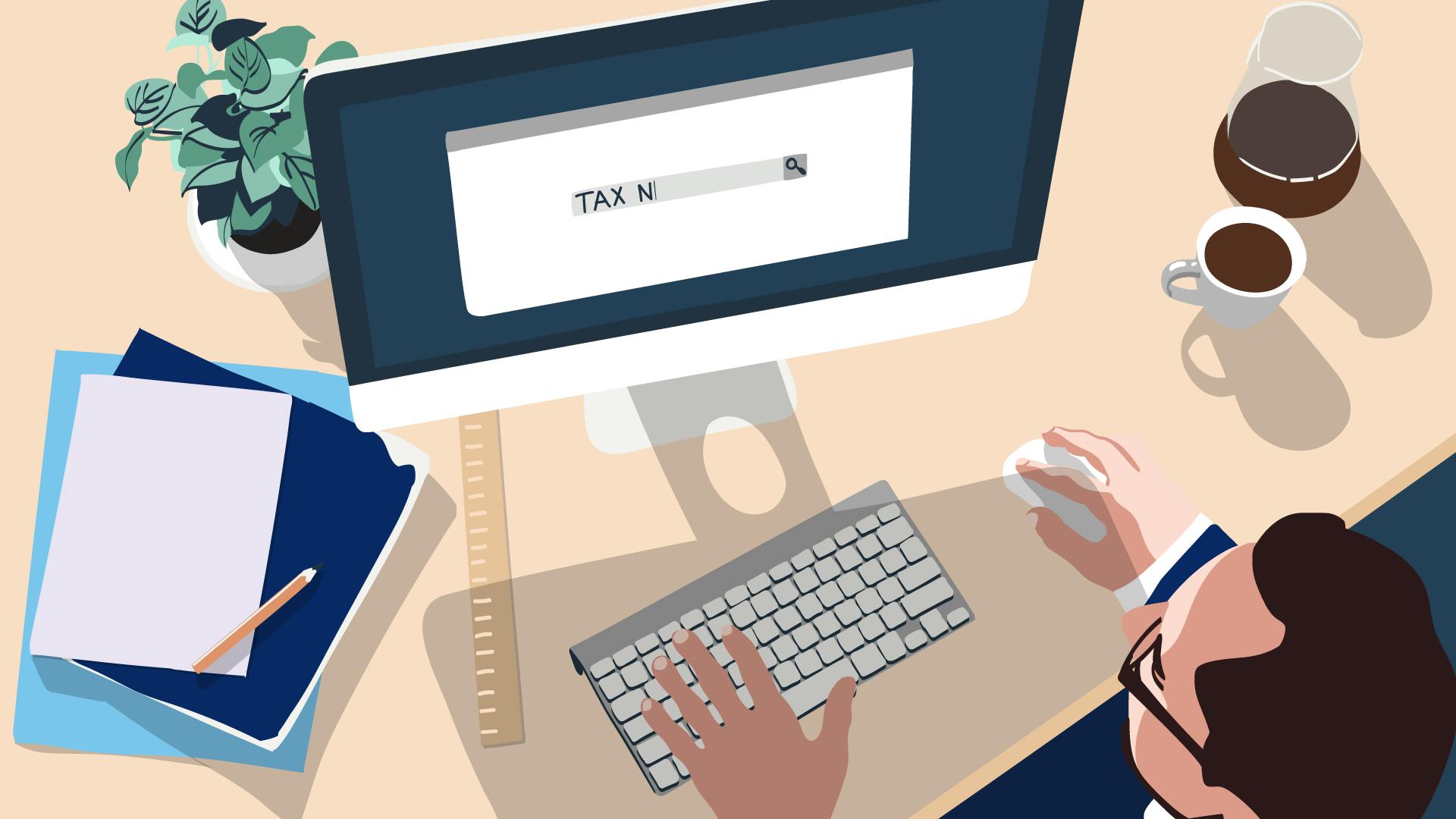Freelancers - What can Kontist do for you and your tax advisor?
Last updated on May 30, 2023
Kate Bailey
Freelance Editor
Mar 25, 2019
Freelancing and self-employment can be a process and life of solitude, especially in the beginning months. You can feel as though you are all at once experiencing a total readjustment of your life: you no longer have a boss telling you what to do, you no longer have teams with whom you need to consult to get a final decision, no one will notice if you leave after lunch and don't finish the day of work... or that extra few hours of sleep you snuck in. This shift represents a lot of positive changes and a lot of adjustments. Thankfully, in the last 10 years, technology and innovators have come through and made some sweeping changes that have automated the harder, more lonely parts of self-employment and freelancing: finances, paperwork, and taxes! Here are five ways Kontist can help you (and your tax advisor) keep on top of all things admin in your business...
Before we delve right in, we have spoken a lot on this very blog about whether or not you need a tax advisor. Interestingly, perhaps, is that the bigger the business gets or the more you grow it, the more you will see the answer - the more demanding the business, the more of a need there is for a tax advisor. However, as this is Germany and so many expats pour in with little to no language skills and little to no understanding of the complicated German financial system - it is easy to understand why opting for one from the get-go is a good idea. Therefore, this article will focus on how YOU stay organized, but it is also going to help your tax advisor and ensure they are not spending hours rifling through a shoebox of receipts. And when that happens it means you are saving money! Of course, this is all included in the overview about Kontist, but delving a little deeper is warranted just so you can see how much less isolated you will feel - you may even feel like you have a new employee helping, with all hands on deck.
The all-important automatic tax overview
In the first two years of your business in Germany, be it freelancer or self-employed, if you are registered for VAT it is already going to become immediately apparent that the monthly routine of reporting and paying taxes is a) unavoidable and b) hard to keep track of. First of all, you are likely focused on securing work rapidly and of course, delivering the best work you possibly can for those said clients. You may send out many invoices (here is hoping!) and they could all be incurring VAT. Whatever the difference is in the VAT you bring in and the expenses you have paid out is - will be payable to the residual.
One of the first to recognize this issue was Kontist, and of course, they were inevitably the first to solve it as well. When you receive the payment of an invoice to your account it will automatically separate the amount that was the VAT - storing it aside for when tax time arrives. There could be every chance you paid out more, and are not liable on the incomings, but it is better safe than sorry and is certainly a nice way to start having a reserve - regardless.

Separating business accounts - compliance
At worst, failing to separate business and personal bank accounts is a common first-time business owner mistake and it looks a little unprofessional. At the actual worst of the true reality of this: it's tax fraud, and the Finanzamt will not take kindly to it. Something else we have focused on in this blog series is the diligence with which you must keep your financial records - not just ahead of submission or declarations, but as historical archives that the Finanzamt can review (AUDIT!) at any time. Here is another reason why this is a bad idea: co-mingling your small business banking with your personal banking creates a confusing mix of transactions on your account statement. The worst part is that it's easy to overlook deductions you may be entitled to. Whether you prepare your own tax declaration or use a tax advisor , messy record keeping will cost you time, money, and possibly missed deductions . Kontist is one of the most comprehensive business-focused solutions, especially in Germany. For too long, the big banks were able to have their way, offering customers very limiting and expensive options when it came to business accounts.
What this meant, especially for single operated business or small to medium enterprises, was a confusing network of accounts spread far and wide, constant fees from the shifting of funds, and of course - big profits for the bank with generally very poor service. What this also meant was that customers were on the outside of convenience as well. Until very recently, German banking was almost archaic and getting anything done - even the most basic of claims or the most basic of changes could take between 3 to 8 workings days. I mention this, distinctly recalling the time it took my former bank 7 working days to change my address - not mentioning the three letters that came in between all of this. This was an account that charges me approximately 70 EUR yearly in fees, 5 EUR for an ATM withdrawal not from their service and refuses to use email or chat in order to answer basic queries. Perhaps now, as a business owner or contemplative business owner, you can see the value in saving all of this time, effort and energy and being able to put it in the business you love.
Do your thing,
not your taxes
Automated invoicing integration
Payday is a great day, but even then - as a freelancer or self-employed person - well, you have to put the bill together to make it all happen. There have been slow advances alongside technology - but the latest, and truly the greatest is integrated invoicing solutions. As an example, Kontist works with FastBill and Debitoor . Back in the day, perhaps 4 years ago even, the rise of digital accounting was bringing the attention of businesspeople, investors and the biggest companies in the world. There were some light attempts at integrating a bank into the accounting system. That seems a little backward - what about integrating the invoicing service into the bank? Well, with Kontist it is possible. This also sharply drives new forms of integrated electronic payment of invoices - client to service provider. This can dramatically speed up the payment timeframes of bills and again - automates a large part of accounting that otherwise would take hours of manual tasking.

Real Time Overviews
There is nothing worse than waiting three days for your bank account to update transactions (yes, I really am talking about my former bank here!). This can be problematic for quite a few reasons. Firstly, being able to assess cash flow is a huge part of maintaining the health of your business and distributing available funds accordingly. Secondly, being able to ensure you are able to claim all of your expenses in a real-time way is also important - sometimes that last minute purchase on one of the last days of the month may go unnoticed as you process your taxes, all because your bank didn't update in time. Lastly, there is ever-present technology to be able to do this - from apps to desktops and every touchscreen-based technology in between. It hardly seems worth the money one can spend on banking to not have this kind of service provided - and yet, many banks are becoming Luddites in industries they have controlled for years - unable to provide real-time services. As a nice addition to the seperating of taxable funds, Kontist provides real-time updates and overviews, and it is also exportable.
What this means for business owners is that within a few clicks, your entire financial overview for a month is available and ready to be sent to your tax advisor, literally at 00:01 on the first of a new month. Now that’s the kind of service freelancers and self-employed people deserve.
These are the "basics" - but these are the fundamentals. It feels as though, with companies like Kontist coming along, there is finally an acknowledgment of the difficulties freelancers, business owners and self-employed people face especially when they do not have the same resources as very large companies, to overcome the administrative demands and hurdles of business life. This is especially so in the event that most people are not trained accountants with MBAs and a spare 15 hours a week just to devote to this side of the business. There need to be solutions and thankfully we are starting to see them. The question you should reflect on this most is: how can I make this as easy, cheap as possible - while it all remains entirely compliant with the law? Hopefully, we have been able to give you a deeper reasoning around the kinds of benefits of a service like Kontist, and hopefully, your next business steps make your life easier - and you become the kind of boss you have always wanted to work for!
Related articles
Freelancers - What Hourly Rate Should You Charge?
There are a lot of assumptions about Freelancers and self-employed people. Some are true - yes the freedom to make the schedule and ‘’choose’’ your clients is great. However, unlike a standard 9 to 5 job where your role is clear and defined, where the organisation you work for scales your salary and aligns it closely with specific experience and also - provides a pathway to earn more, freelancers are left to structure their income themselves as well. The assumption is - this is great, you can really charge what you are worth! However, clients tend to assume freelancers have a ‘’discounted rate’’ or that their direct rate entitles them to harsh negotiations. Quite simply, this is not the case. For freelancers, in this case, it is very important to know how much you should charge, and why - so you can negotiate your worth. In this article, we are going to take a look at what hourly rate you should be charging.
Kate Bailey
Freelance Editor
